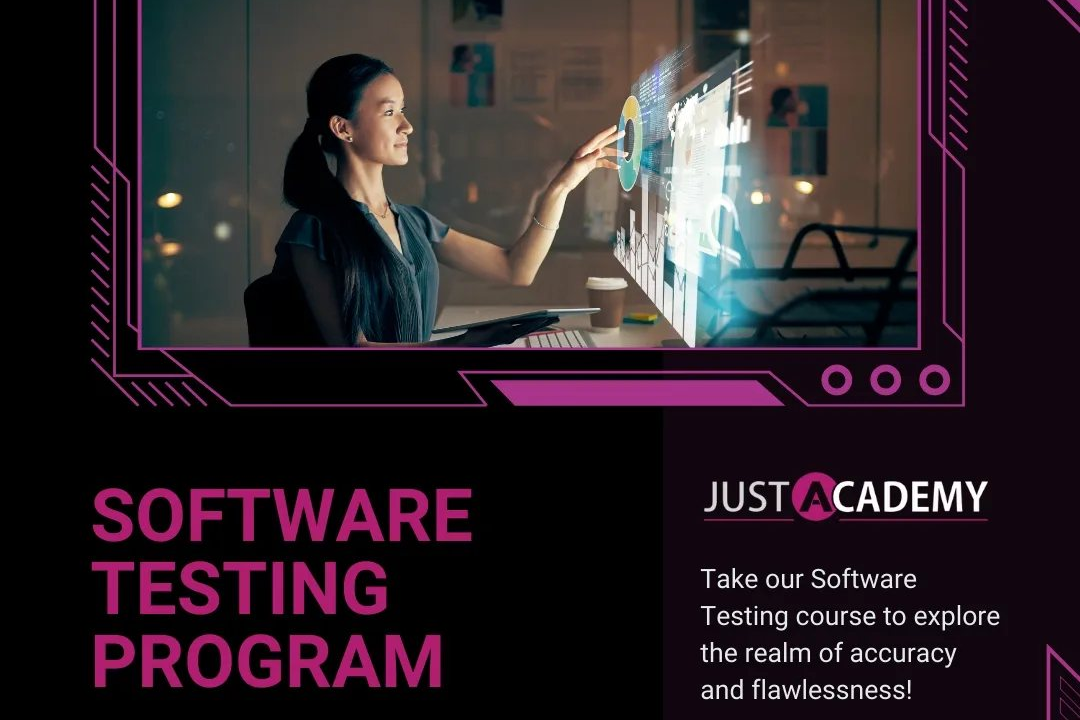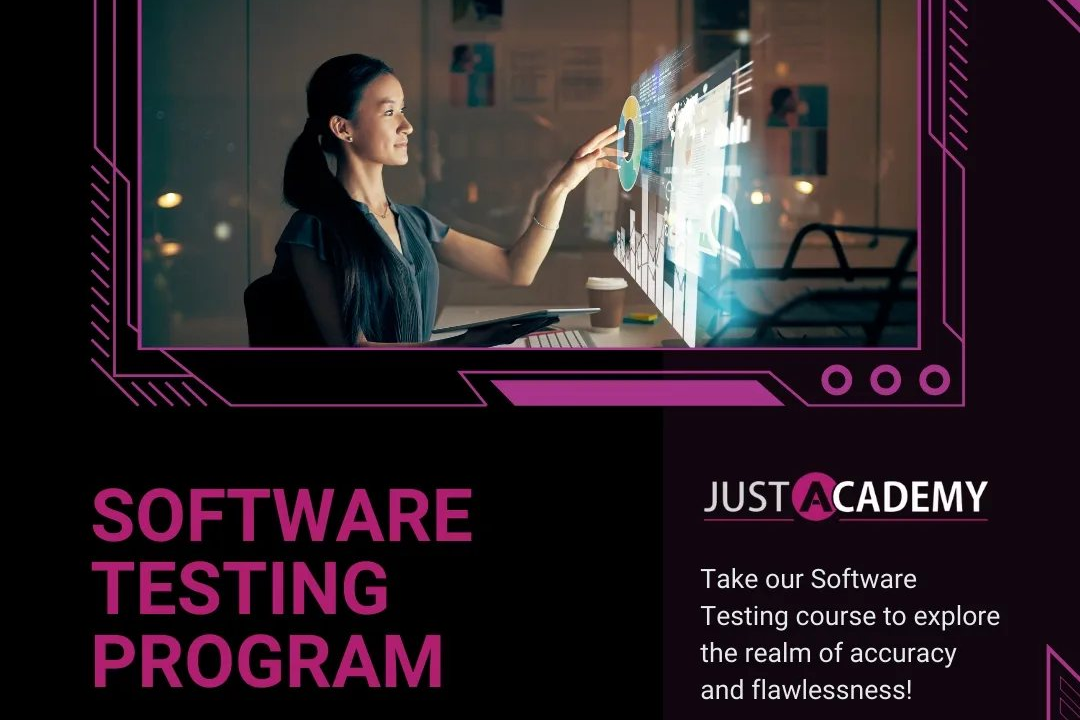5+ Years Experienced Selenium Interview Questions In Mindtree
Interviews for candidates with over 5 years of experience in Selenium at Mindtree focus on uncoverin
5+ Years Experienced Selenium Interview Questions In Mindtree
Interviewing candidates with over 5 years of experience in Selenium at Mindtree is vital for ensuring that potential hires possess not only advanced technical skills but also the ability to apply these skills effectively in real-world scenarios. These interviews often delve into concepts such as framework design, test automation strategies, and integration with CI/CD pipelines, which are critical for maintaining high-quality deliverables. By focusing on practical experience, Mindtree can identify candidates who are adept at solving complex testing challenges, optimizing automation processes, and contributing to continuous improvement in software quality assurance practices. This rigorous assessment helps in building a proficient team that can manage large-scale projects and enhance the overall efficiency and reliability of software testing.
To Download Our Brochure: https://www.justacademy.co/download-brochure-for-free
Message us for more information: +91 9987184296
Interviewing candidates with over 5 years of experience in Selenium at Mindtree is vital for ensuring that potential hires possess not only advanced technical skills but also the ability to apply these skills effectively in real world scenarios. These interviews often delve into concepts such as framework design, test automation strategies, and integration with CI/CD pipelines, which are critical for maintaining high quality deliverables. By focusing on practical experience, Mindtree can identify candidates who are adept at solving complex testing challenges, optimizing automation processes, and contributing to continuous improvement in software quality assurance practices. This rigorous assessment helps in building a proficient team that can manage large scale projects and enhance the overall efficiency and reliability of software testing.
Course Overview
The “5+ Years Experienced Selenium Interview Questions in Mindtree” course is meticulously designed for seasoned professionals seeking to enhance their interview readiness for advanced Selenium roles at Mindtree. This comprehensive program covers a range of critical topics, including in-depth discussions on Selenium WebDriver, framework design principles, best practices for automation, integration with CI/CD tools, and real-world problem-solving scenarios. Through targeted practice questions and expert insights, participants will learn to articulate their experiences effectively, demonstrating their technical prowess and strategic thinking. Additionally, the course offers valuable tips on navigating behavioral and situational interviews, ensuring candidates are well-prepared to impress potential employers and secure their desired roles in the competitive tech landscape.
Course Description
The “5+ Years Experienced Selenium Interview Questions in Mindtree” course is specifically tailored for seasoned software testers and automation engineers aiming to excel in interviews at Mindtree. This program provides an in-depth exploration of advanced Selenium concepts, focusing on practical applications and real-world scenarios that professionals with over five years of experience may face. Participants will engage with a curated set of interview questions that dive into topics such as Selenium WebDriver, TestNG, framework design patterns, performance testing, and best practices for automation. Additionally, the course emphasizes enhancing interview techniques, including behavioral questions and situational analysis, arming candidates with the knowledge and confidence needed to effectively showcase their skills and experiences in high-stakes interview settings.
Key Features
1 - Comprehensive Tool Coverage: Provides hands-on training with a range of industry-standard testing tools, including Selenium, JIRA, LoadRunner, and TestRail.
2) Practical Exercises: Features real-world exercises and case studies to apply tools in various testing scenarios.
3) Interactive Learning: Includes interactive sessions with industry experts for personalized feedback and guidance.
4) Detailed Tutorials: Offers extensive tutorials and documentation on tool functionalities and best practices.
5) Advanced Techniques: Covers both fundamental and advanced techniques for using testing tools effectively.
6) Data Visualization: Integrates tools for visualizing test metrics and results, enhancing data interpretation and decision-making.
7) Tool Integration: Teaches how to integrate testing tools into the software development lifecycle for streamlined workflows.
8) Project-Based Learning: Focuses on project-based learning to build practical skills and create a portfolio of completed tasks.
9) Career Support: Provides resources and support for applying learned skills to real-world job scenarios, including resume building and interview preparation.
10) Up-to-Date Content: Ensures that course materials reflect the latest industry standards and tool updates.
Benefits of taking our course
Functional Tools
1 - Selenium WebDriver: This is the core component of the Selenium suite, providing a programming interface to create and execute automated tests for web applications. Students will learn to navigate through various web elements, execute JavaScript, handle pop ups, and manage cookies using WebDriver. Hands on sessions will include working with different browsers, thereby enabling participants to create cross browser tests, showcasing a comprehensive understanding of how WebDriver interacts with browser instances.
2) TestNG: As an essential testing framework, TestNG is utilized to design and manage test cases effectively. The course will cover the creation of XML based test configurations, grouping of test cases, and implementing parallel testing. Participants will delve into the advantages of TestNG over JUnit, particularly its flexible test execution strategies, annotation handling, and reporting capabilities. This knowledge empowers students to write optimized, maintainable test suites with better management of test execution.
3) Maven: This build automation tool is crucial for managing project dependencies and building projects in a standardized manner. Students will gain an understanding of how to integrate Maven with Selenium to automate the build process, including dependency management and plugin configurations. Topics will encompass creating a POM (Project Object Model) file and leveraging Maven commands to simplify project setup, enabling participants to efficiently manage multiple projects with consistent configurations.
4) Git: Version control is essential for any software development process, and Git plays a significant role in maintaining test scripts. The training will cover the fundamentals of Git, including repository creation, branching, merging, and conflict resolution. Participants will learn to use platforms like GitHub for collaborative projects, allowing them to manage team efforts effectively and track changes over time. This skill ensures that students are adept at maintaining their codebase in a professional environment.
5) Cucumber: As a tool for Behavior Driven Development (BDD), Cucumber allows for writing test cases in a human readable format. The course will explore how to implement Gherkin language to write acceptance criteria and automate those scenarios using Selenium. By integrating Cucumber with Selenium, participants can create comprehensive test cases that bridge the gap between technical and non technical stakeholders, enhancing collaboration within development teams.
6) Jenkins: Continuous Integration (CI) and Continuous Deployment (CD) are pivotal in modern software development, and Jenkins serves as a powerful automation server for this purpose. Students will learn about setting up Jenkins pipelines to automate the execution of test cases at every code commit. Topics will include configuring Jenkins jobs, monitoring test results, and integrating test reporting tools, ensuring that candidates are equipped with the knowledge to implement or support CI/CD practices in their future workplaces.
7) Allure Reports: Reporting tools are vital for analyzing test outcomes, and Allure offers comprehensive reporting features for test execution results. The course will cover how to generate visually appealing and informative test reports that detail test execution, successes, failures, and trends. By incorporating Allure Reports into their projects, participants will be able to provide stakeholders with clear insights into the testing process and results, facilitating better decision making surrounding software quality.
8) Framework Design: Understanding the structure and design of automation frameworks is crucial for scalability and maintainability. The course will explore different types of frameworks such as Data Driven, Keyword Driven, and Hybrid frameworks. Participants will learn how to choose the appropriate framework based on project requirements and will engage in hands on activities to build a sample framework from scratch. This knowledge ensures that students are able to implement best practices in automation project design.
9) Handling Dynamic Elements: Real world web applications often feature dynamic content that can complicate automation efforts. This section will cover strategies for identifying and interacting with dynamic web elements efficiently using advanced locators and synchronization techniques. Students will learn how to use explicit and implicit waits, improving the reliability of their test scripts in fluctuating environments.
10) API Testing with RestAssured: Testing APIs is becoming increasingly important in modern applications. The course will introduce participants to RestAssured, a Java library for testing RESTful services. Students will gain the skills necessary to validate API responses, handle authentication, and perform CRUD operations, thus ensuring that they can maintain the correctness of backend services as part of their automated testing efforts.
11 - Cross Platform Testing: As applications are expected to function flawlessly across various devices and platforms, understanding cross platform testing is essential. The course will cover best practices for testing web applications on mobile devices and desktops, utilizing tools like BrowserStack or Sauce Labs to execute tests in cloud environments. This knowledge will equip participants to create comprehensive test suites that address different user environments.
12) Mobile Testing with Appium: Mobile app automation is a crucial skill in today’s app driven market. Participants will be introduced to Appium, an open source tool for automating mobile applications across platforms. This segment will include practical experience in setting up Appium, writing test scripts for both Android and iOS applications, and understanding the unique challenges posed by mobile environments, thereby widening their skill set.
13) Behavioral Analysis: Beyond just scripting tests, understanding user behavior and experience is important. The course will delve into user experience (UX) principles and how automation can help validate UX. Students will learn to design test cases that not only check functionality but also consider performance and responsiveness, ensuring the application meets user expectations.
14) Test Automation Strategies: This section will focus on how to develop an overarching strategy for test automation within a project. Participants will explore the development of a test automation roadmap, criteria for selecting test cases for automation, and how to manage and prioritize test automation efforts. This strategic insight will enable participants to effectively advocate for automation within their teams.
15) Debugging and Troubleshooting: Test failures are inevitable in any testing process. This module will cover common pitfalls in Selenium automation and how to debug scripts effectively. Participants will learn various troubleshooting techniques, log analysis, and how to use debugging tools to quickly identify and resolve issues in their code, ensuring higher test stability and reliability.
16) Soft Skills for Automation Engineers: Apart from technical capabilities, soft skills play an essential role in the effectiveness of automation engineers. This session will cover communication, teamwork, and problem solving skills tailored to the needs of automation engineers. Participants will engage in collaborative exercises emphasizing the importance of articulating test strategies and collaborating with team members across disciplines.
17) Continuous Learning and Resources: Technology and automation tools are constantly evolving. This final module will guide students on how to keep their skills up to date after completing the course. Participants will be introduced to community forums, meetups, webinars, and online resources, encouraging lifelong learning and engagement with the automation testing community.
By covering these extensive points, participants of JustAcademy will not only gain technical proficiency in automation but also develop a holistic approach to software testing, preparing them for the dynamic challenges of the tech industry.
Browse our course links : https://www.justacademy.co/all-courses
To Join our FREE DEMO Session:
This information is sourced from JustAcademy
Contact Info:
Roshan Chaturvedi
Message us on Whatsapp: +91 9987184296
Email id: info@justacademy.co
Important Topics To Learn In Manual Testing












